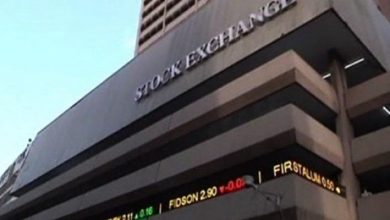Many Troubles With IB Plc
The takeover of the International Breweries Plc by Belgium’s AB InBev , the beer giant and the world’s largest brewer, indeed, cast for it a shadow bigger than its size. In a manner smacks of a preplanned move to conquer the Nigeria’s brewery industry and displace the incumbents , AB InBev acquired SAB Miller Nigeria, former owner of International Breweries, Pabod Breweries and Intafact Breweries in 2016 and later adopted its current name purposely for that .Observers and analysts are not thinking differently ; they believe the initiative may signal the end of decades of dominance of the brewery industry by Nigerian Breweries and Guinness ,Nigeria Plc . Indeed , the new owner of IB Plc did not hide the fire in its belly . Its Managing Director, Mr. Hugo Dias Rocha stated this more clearly in what could be called its corporate strategic intent : “Our dream of achieving market leadership of the beer industry in Nigeria remains unshaken as we are confident in our abilities and commitment as a team.” . The takeover ,indeed , sent jitters down the spines of the incumbent market leaders in the industry .
.
Both the observers and the current owner are wrong and the fear has disappeared ;it failed to translate its dream to realty . Against the hope raised and stakeholders expectations , the portents are increasingly gloomy .More and more signals are pointing to the opposite directions ; despite this intimidating image , to the surprise of industry analysts ,the company has only become a mere serial losers ; for its inability to translate its huge potentials to the expected fortunes but instead sustaining back to back losses in the last five consecutive financial years ,the company has turned itself to an albatross for its shareholders ,creating more fears than dreams on their faces ;for AB InBev, it is now clear that its leadership ambition is a mere dream and probably a drain on its investments . .
Its 2021 FY Audited Financial Statement, revealed a loss after tax of N17.66 billion ; before this , the brewery had declared bottom line loss for three consecutive years since 2018, posting a loss of N3.93 billion. In 2019, the loss declared spiraled by an overwhelming 607% to N27.79 billion ; its loss ,however ,declined in 2020 to N16.08 billion. Within the three years, ironically , the company grew its revenue by over 51% on the back of inflationary pressures driven by increases in prices of goods and services over the years. This implication is clear : this potentially giant brewer is making money but finds it difficult to translate to net income or bottom line
In the ongoing financial year, a glitter of hope surfaced in the first quarter . International Breweries Plc in its first quarter ended March 31, 2022 reported stronger growth in revenue backed by consumer demand for its brands to migrate into impressive earnings and positioned to deliver enhanced profits in 2022 financial year. The volume growth was ahead of industry expectations that drove revenue by 48 per cent in the first quarter of 2022 and contributed to the company’s migration from loss to positive results in the period under review. The unaudited first quarter, 2022 financial result and accounts of International Breweries showed N57.52 billion revenue from N38.96 billion reported in Q1 2021.
But this hope dramatically fizzled out in the second and third quarters signaling another doom in 2022 .Although , International Breweries Plc ,makers of “Hero” Lager , reported a Profit After Tax of N336.20mn for the half year period ended 30 June, 2022, a 102.2% upward push from the N13.88bn loss it reported for the same period in 2021,it was on the strength of the first quarter result .This is because in three months ,between April and June , it recorded another loss of N384.97m . This loss ,however , could not be covered again in the third quarter; its loss for the period for that period was N3.15b and for the nine months was N2.81b in 2022 as against N2.22b and N14.00b losses in 2021 respectively .
.Its shareholders have been at the receiving end of the above miserable scenario with nether dividend nor any appreciable capital gain .
What is the problem with the International Breweries? is its resources inadequate or the manner of their deployment by its leadership to generate adequate competencies or capabilities to outperform its competitors below expectations or its products not competitive ?
The miserable performances of IB Plc have continued to generate mixed reactions. For the management of IB Plc , the above uninspiring performances over its five years operations could simply be traced or attributed to institutional factors. Perhaps getting jittery over another disastrous performance on the horizon , the top management , in a recent press release titled : “International Breweries Reports Third Quarter and Nine Months 2022 Results’’ , tried hard in a bid to defend itself and assuage its disenchanted stakeholders attributed another loss in the third quarter 2022 results to the prevailing macro-economic headwinds.
The company blamed the challenging quarter on the industry contraction and supply chain constraints as the single-digit top-line growth recorded by was knocked out by elevated cost pressures. “Following a strong first half of the year, our volumes declined in the third quarter of 2022 due to a soft industry and ongoing supply chain constraints. The last three months have been characterized by elevated inflationary pressure which has had an impact on consumer disposable income. The period experienced especially severe weather with a longer rainy season and floods in key markets.”
Hugo Dias Rocha explained further , “despite the difficult quarter, we remain focused our winning commercial strategy. Year-to-date, our brands remain resilient and continue to deliver Net Revenue growth. We remain committed to returning to profitability and creating value for our stakeholders consist.” . “We remained resilient during the period led by our core brands, premium portfolio and innovation. As part of our “Beyond Beer” strategy, we launched Flying Fish during the quarter to address incremental occasions and consumer needs. This has been well received and continues to gain acceptance in the market.”
Its top-line grew by mid-single single digits (5.6%) ,the company explained , was driven by revenue management initiatives. It , however , noted that its gross profit and margins declined on elevated costs largely due to higher energy prices, FX illiquidity, commodity costs headwinds, severe weather, and overall inflationary pressures. Its , however, explained that its EBITDA which is positive was driven on the back of prudent resource allocation and cost management. Its concluded the release that by saying its “Year-to-date, top-line grew driven by revenue management initiatives. We remain positive on the industry’s outlook and remain confident in the future growth of our business and will continue to invest and strengthen our brand portfolio across all segments.”
But the problem with IB Plc is more than captured by its CEO . Institutional factors could and are known to impact negatively and positively on a company’s performance There is no doubt that monetary and fiscal policy, trade and industrial policy, national levels of educational achievement, the structure of corporate ownership, and the social norms and values that predominate in a particular nation have an impact on the competitiveness of firms therein domiciled.
However , the role of institutional factors Institutional factors or the environmental milieu in which a firm operates in competitive disease often is believed to be exaggerated. There is another side to a coin. Every player faces one barrier or the other and opportunities as well in any environment, but the degree of the fortunes exploited or the gravity and intensity of how these institutional factors are impacting it negatively depends on strategic capabilities or competencies of the management ; there are also avenues open to a firm confronting insurmountable barriers to competitiveness.
To overcome the above challenges , some strategic leaders are known to redraw industry boundaries so that what are now attractive lies outside the former barriers. This is done by radically shifting the basis for competitive advantage in the industry or creating entirely new industry space ideally suited to one’s own strengths; firms eager to overturn the present industry order challenge “accepted practice,” redraw segment boundaries, set new price-performance expectations and reinvent the product or service concept. Moreover, foresight, stretch, and leverage provide the energy and rationale for proactive advantage building and industry re-engineering. These are what enable a company to provide products or services to customers that are valued or might be valued in the future .it may be at threshold level or with threshold features or at critical success factors level ; what a company or a strategic leader needs to tame are those threats and exploits the available opportunities and consequently deliver products that are valued by customers and these involve the ability to manage cost and product features , understand performance standard and the importance robustness of resources and competencies and the extent to which they are easy or difficult to imitate .




